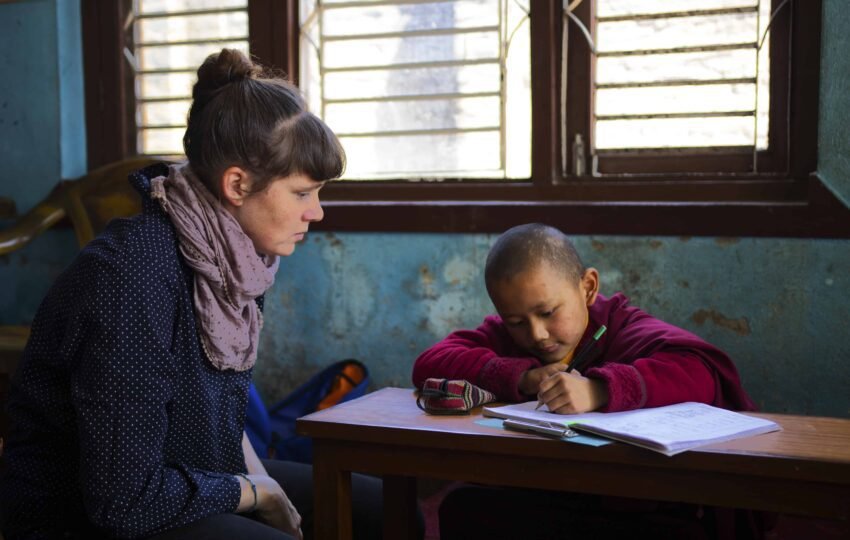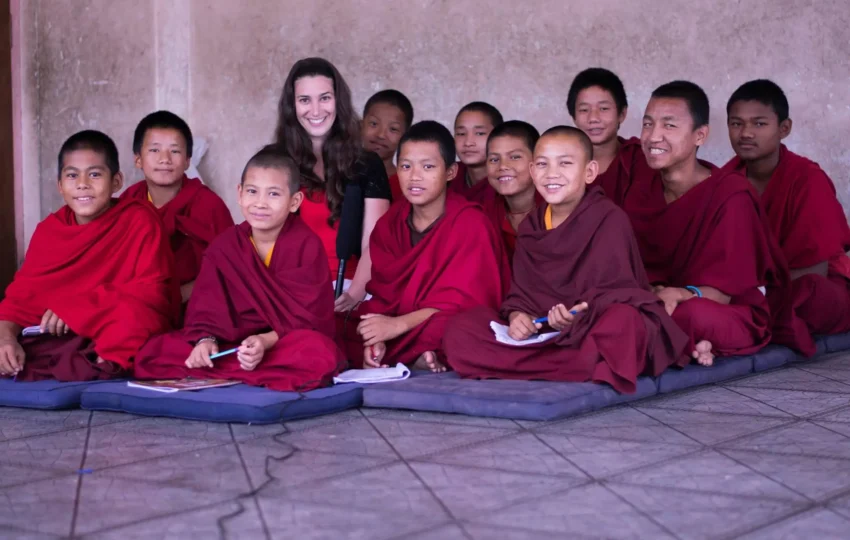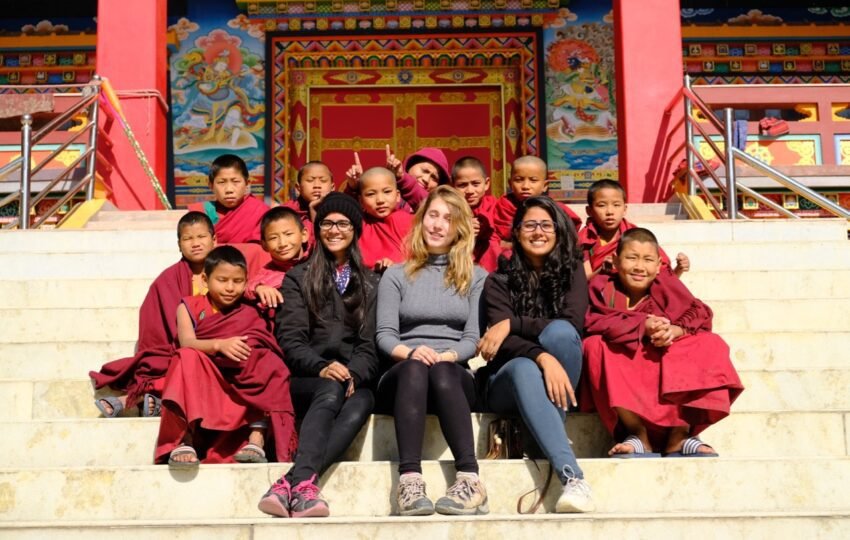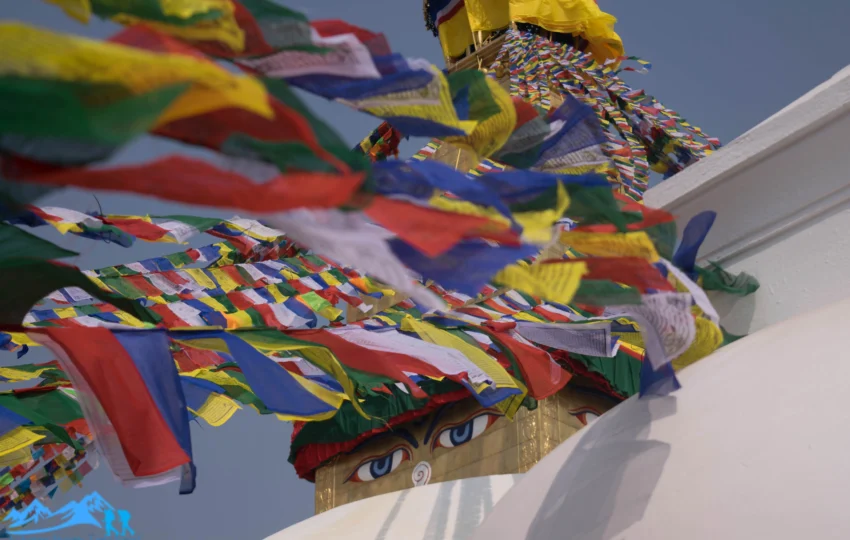Volunteering in the Buddhist Monastery program is tailored for individuals who have a keen interest in religious culture and are willing to teach English at the monastery for a minimum of two weeks or more. Volunteer Society Nepal(VSN) arranges for longer stays upon request. During their stay, volunteers will spend approximately two to three hours each day teaching English to both young and old Buddhist monks. The monks, in turn, will impart their knowledge and culture to the volunteers. The program also includes meditation sessions and visits to Hindu and Buddhist holy sites.
For the first three days, the volunteer will take intensive language classes, as well as teacher training, every day at the Volunteer Society Nepal(VSN) Office in Kathmandu. The monks will be able to speak both languages, so it is really a matter of the volunteers’ preference; however, most people find Nepali easier to learn. The volunteers will visit holy sites around the Kathmandu Valley. After one week, they will be placed with a host family near the monastery, depending on the availability of a place to stay in the monastery, where they will stay for a total of six weeks or more. This program combines religious research through an experiential approach with volunteer English teaching. Due to the fact that the monks spend their lives inside the monastery, this program provides them with the amazing opportunity to learn English, as well as experience another culture, from an international volunteer.
In Nepal, Buddhism is a way of life. For many people, volunteering in a Buddhist monastery is a way to give back to their community and connect with their religion.
Monasteries in Nepal are often located in remote areas, away from the hustle and bustle of city life. Monasteries in remote areas provide volunteers with an opportunity to disconnect from technology and connect with nature. It could be a meditative experience for an individual.
Volunteers typically help with tasks such as cooking, cleaning, and gardening. They may also lead or participate in meditation sessions and other religious ceremonies. Volunteering in a Buddhist monastery is a great way to learn about Buddhism and Nepali culture.
In your role as a volunteer English teacher for Buddhist monks in a monastery, your main responsibility will be to instruct the monks in the English language. You will dedicate 2-4 hours each day to teaching English to the monks. You are highly encouraged to facilitate discussions and debates, as this will significantly enhance your proficiency in understanding and speaking English.






